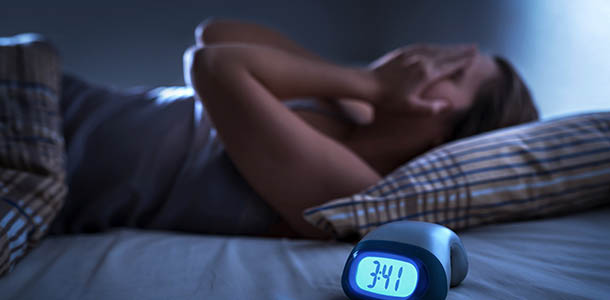Uncategorised
Common Sleep Disturbances and Natural Ways to Prevent Them
Parasomnia is the blanket medical term for sleep disturbances which many of us experience in different forms. Sleep talking, sleepwalking and nightmares are all common and people needn’t suffer in silence. In this article we are going to look at common sleep disturbances and natural ways to prevent them.
Sleep Talking
Sleep talking can include anything from occasional mutters to talking incoherently or even saying full sentences in your sleep. This kind of sleep disturbance occurs mostly in light sleep and not deep sleep. Sleep talking can be caused by a number of factors but the ones which are most likely are diet and lifestyle factors. Having a regular sleep schedule and avoiding caffeine and alcohol can help as well as activities to reduce stress and anxiety.
Sleep talking isn’t considered dangerous but you could say inappropriate or rude things without meaning to. A healthcare professional can point you in the right direction if it is an issue which you feel you need to address.
Sleep Walking
Sleepwalking is when people in a state of non-REM sleep (deep sleep) get up and walk around while they are still asleep. Sometimes people can perform daily tasks and routines whilst sleepwalking too and even leave the house with no awareness of what they are doing. People often look dazed or confused and have little to no control over what they are doing.
Sleepwalking is more common in children than adults and can run in the family. Although it typically does not require treatment it can be dangerous if the person trips or falls whilst they are unaware of their surroundings.
Sleepwalking can be caused by a number of lifestyle factors such as stress, sleep deprivations and diet factors. Your Dr. will likely look at your lifestyle and diet a as a first port of call and make recommendations to try and reduce the occurrence of sleepwalking.
Nightmares
Nightmares are common and not problematic to most people however some people do experience them more than others. There is no definitive research yet but people say that certain foods make them more prone to nightmares:
- Fatty and fried food
- Alcohol
- Caffeine
- Chocolate
- Spicy Foods
If you are suffering from nightmares then it is recommended to keep a food diary and see if you can spot any correlation between the times nightmares are occurring and what you are eating in your diet.
Hypnic Jerks
Hypnic jerks, if you have never heard of them, are the sudden, involuntary movements some of us experience when falling asleep. Some people experience hypnic jerks on their own and some people often find them accompanied by a dream. It’s when you are not in a deep sleep and you have body twitches that your awake self can feel. That is a hypnic jerk.
There is no definitive cause in research for hypnic jerks though some research suggests that stimulants such as caffeine can cause them. Also, stress and anxiety can affect the transition in to sleep and therefore lead to hypnic jerks as the body is not fully relaxed.

